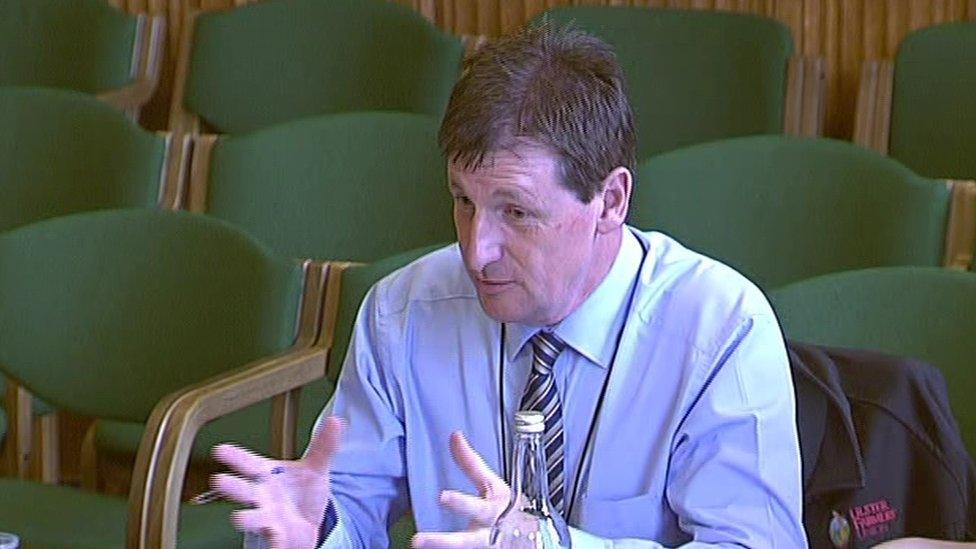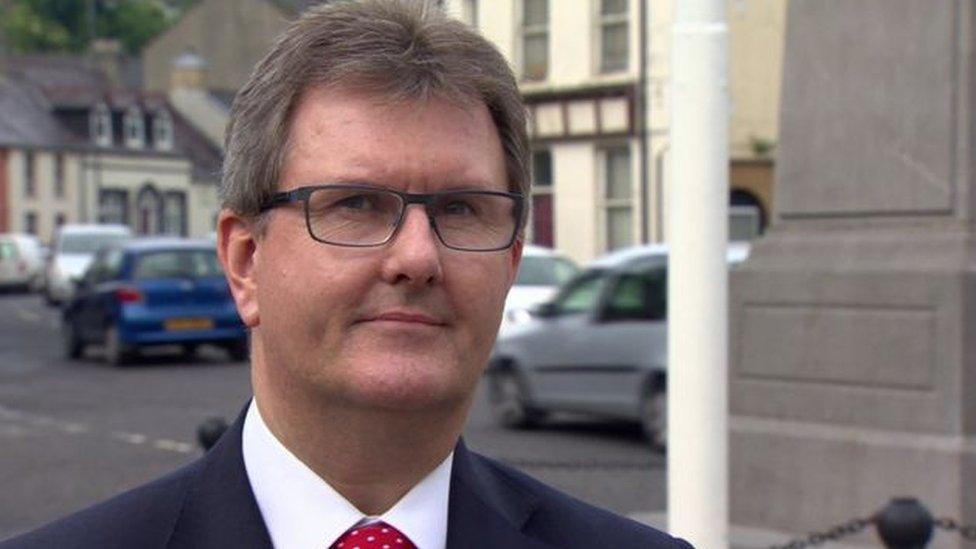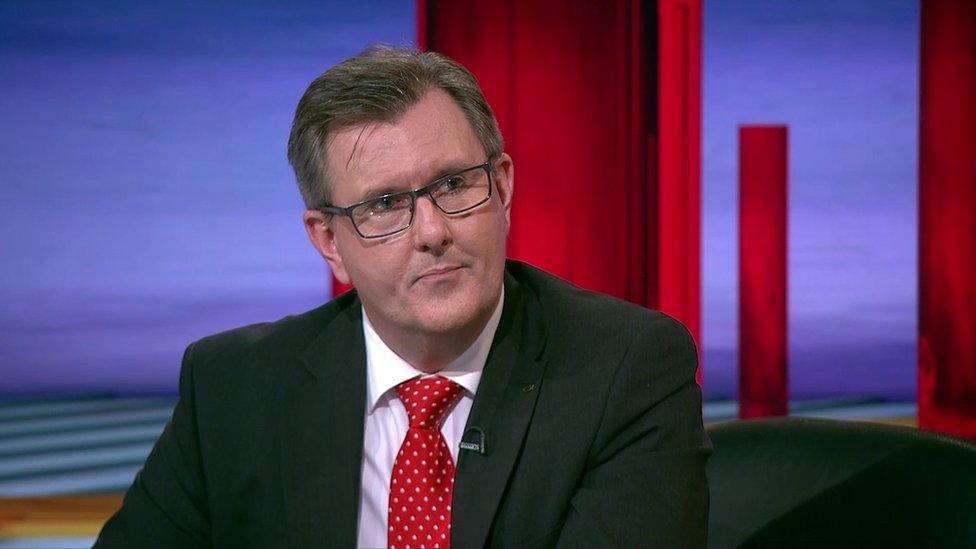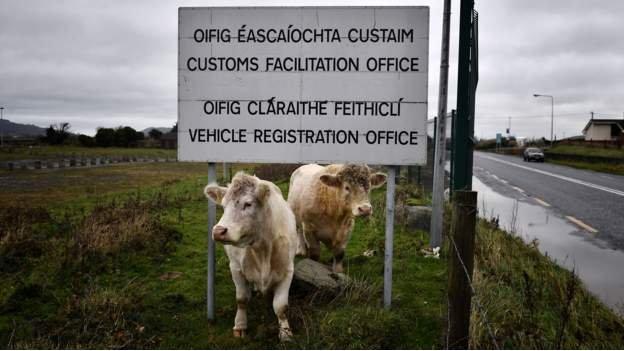Brexit: Leo Varadkar says deal is 'only way to avoid a hard border'
- Published
Taoiseach Leo Varadkar said in a no deal scenario it would be very difficult to avoid a hard border.
Taoiseach (Irish Prime Minister) Leo Varadkar has said the draft Brexit deal is the only way to avoid a hard border on the island of Ireland.
Mr Varadkar also warned that any attempt to renegotiate or pick apart the agreement could see it unravel.
The taoiseach said the Irish government was "continuing to make preparations" for a no-deal Brexit.
"We can avoid a hard border by signing up for the agreement that has been negotiated," said Mr Varadkar.
"In a no deal scenario it would be very difficult to avoid a hard border because of the obvious fact that, as Ireland remains part of the European union, we would no doubt be asked to implement European law.
"Also the United Kingdom having left the European Union would seek to join the World Trade Organisation.
"They would have to implement WTO rules. So those hard Brexiteers who say that somehow just through political will you can avoid a hard border, that doesn't make sense."
The taoiseach said that he does not see much room for renegotiation of the deal for the UK's withdrawal from the EU, no matter who the Brexit secretary is.
"This is a withdrawal agreement which took the best part of two years to negotiate, involving 28 countries all of whom have their own particular concerns and interests," he said.
'Step forward'
A number of business organisations representing Northern Ireland have issued a joint statement describing the draft agreement as a "welcome step forward".
The Confederation of British Industry NI, Federation of Small Businesses NI, Institute of Directors NI and NI Chamber of Commerce said the deal "provides some much needed clarity that local businesses have been calling for".
"While by no means perfect, it provides a platform to move onto the critical next stage and allows work to begin on the formulation of a comprehensive future trade deal," they said.
"Crucially, the provision for an extended transition period offers our members the flexibility and time to adjust to a new relationship with the EU which they must be allowed to do in as smooth and orderly a manner as possible."

Wesley Aston said the Ulster Farmers Union supports the draft withdrawal agreement
Earlier, the chief executive of the Ulster Farmers Union (UFU) said the DUP should consider supporting the Brexit deal.
Wesley Aston said the UFU supports the draft deal.
The DUP said they cannot support the draft text as it could lead to the break up of the UK and would damage the economy.
That has put them at odds with most of Northern Ireland's business groups.
"We would support the deal going through and, against that background, we would ask the DUP to consider voting for this deal," said Mr Aston.
The draft deal between the EU and UK includes a backstop plan, which would mean Northern Ireland would have to stay aligned to some rules of the EU single market.
However, it also states that Northern Ireland products will continue to have "unfettered market access" to the rest of the UK.
Ivor Ferguson the president of the UFU said there was "no option but to support" the prime minister's Brexit deal.
"It's the best deal on the table. A no deal would be disastrous for our Northern Ireland farmers," he said.

Sir Jeffrey Donaldson has suggested businesses supporting the draft deal had not properly understood it
On Thursday, DUP MP Jeffrey Donaldson suggested that businesses supporting the deal had not properly understood it.
Tax breaks
Meanwhile, the body representing the hospitality businesses in Northern Ireland has raised concerns that "level playing field" provisions in the backstop would prevent tax breaks for its industry.
The backstop would mean the EU having a continuing role in deciding what sort of help businesses can get from government - what is known as state aid.
For aid granted by the UK that affects trade between Northern Ireland and the EU, the European Commission (EC) will continue to enforce the aid rules directly.
Hospitality Ulster fears that would prevent two tax breaks it has been campaigning for.
- Published16 November 2018

- Published15 November 2018

- Published16 October 2019
